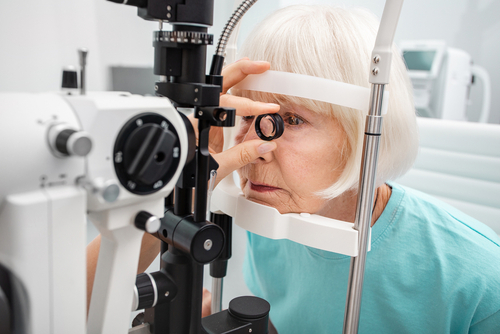Should I Get an Eye Exam Every Year?

For healthy eyes, it’s recommended that you see your eye doctor every year for an eye exam. This is especially true if you wear glasses or Misight contact lenses, as you need to have these prescriptions updated regularly. Keep reading to learn more about the importance of regular eye exams!
Prevention
According to the World Health Organization, roughly 80 percent of vision impairment worldwide can be avoided. Yearly eye exams prevent vision problems from worsening.
They are also the best way to diagnose any eye conditions in their early stages before they can cause vision loss or other irreversible issues. That is why it’s important to schedule frequent visits to your ophthalmologist even if you feel your eyes are healthy.
Keeping Your Prescription Updated
Since your eye shape and condition change with age, even the slightest vision changes can affect your prescription. With an outdated prescription, you risk experiencing constant headaches, dry eyes, sensitivity to light, and neck and eye strain.
Your prescription could have changed since your last appointment. This makes it essential to schedule your annual eye exam to keep it up-to-date.
Vision Changes
Fluctuations in your vision are a normal part of aging. But if they are not closely monitored through yearly eye exams, vision changes can negatively impact your eye health.
Checking for Eye Diseases Without Symptoms
Some eye diseases, such as glaucoma, develop slowly and have few to no symptoms. If the condition is missed and treated early, it can lead to blindness.
A detailed annual eye exam can detect glaucoma early and halt further vision loss. Glaucoma testing is done by examining your eye pressure, assessing the state of the cornea and health of the optic nerve. Only a professional eye doctor can perform these tests.
Identifying Overall Health Concerns
Regular eye exams not only prevent vision complications from becoming worse or developing but can also offer insights into your overall health. Through an eye exam, your ophthalmologist can discover health issues like:
Autoimmune Disorders
Double vision, eye inflammation, and drooping eyelids can be symptoms of autoimmune diseases like multiple sclerosis, Sjorgren’s syndrome, and rheumatoid arthritis. An eye test can help spot early signs of an autoimmune disorder.
Diabetes
If the blood vessels in your retina are leaking yellow fluid or blood, that can indicate diabetic eye disease.
High Cholesterol
With a dilated exam, your ophthalmologist can see if there’s plaque buildup in your eyes or bluish rings around the cornea. Both are signs of high cholesterol levels.
High Blood Pressure
Tears or bends in your eye could mean you have hypertension.
Cancer Screening
You can see signs of cancer in the retina, choroid, iris, and optic nerve. Early detection of cancer can help treat the disease as soon as possible before it progresses.
Thyroid Issues
Protruding eyes or Graves’ disease can identify thyroid disease.
Have You Scheduled Your Eye Exam This Year?
If you can’t remember the last time you had an eye exam or saw an eye doctor, that’s a sign that it’s been too long. Even if you have 20/20 vision, it’s essential to book an appointment with your ophthalmologist.
The eye doctors at Short Hills Ophthalmology care about your eyes and overall health. Schedule your annual eye exam with one of the eye doctors at Short Hills Ophthalmology in Short Hills and Clifton, NJ, today! Your sight is too precious.



